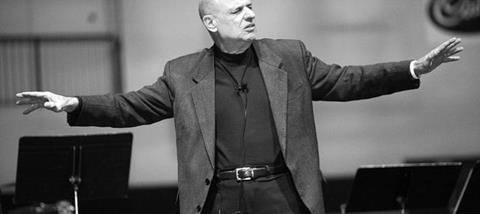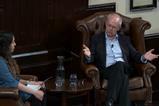Bible scholar Ian Paul says that Tony Campolo's new affirmation of same-sex relationships is at odds with his commitment to take the call of the gospel seriously.

It was with some sadness that I read of Tony Campolo’s change of heart on the question of same-sex relationships. But it was with even greater sadness that I read his reasoning at his 'For the Record' blog post'.
I am saddened because Tony has been a provocative and inspiring leader in challenging evangelicals to take the words of Jesus and the words of Scripture seriously. But the statement he has issued appears to take us in quite another direction.
He starts with a popular but mistaken reading of Matthew 25:40 and Jesus’ words ‘Whatever you did for one of the least of these brothers and sisters of mine, you did for me.’ Most decent commentaries will point out that Jesus’ brothers and sisters are not the poor in general, but ‘whoever does the will of my Father in heaven’ (Matt 12:50). Jesus’ teaching here is not about how people respond to the poor, but how they respond to poor old Christians!
There is no doubt that social justice is an indispensable part of the gospel—if you doubt that, just read the Magnificat in Luke 1—but it is part of the gospel, and not the gospel. Jesus’ defeat of sin leads to the undoing of injustice, but it leads to lots of other things as well.
Tony’s thin reflection continues into marriage. In contrasting the ‘spiritual dimension’ of marriage with the goal of procreation, he prioritises a disembodied spirituality which the Bible wouldn't countenance. We were made bodily, male and female, and our destiny is bodily resurrection in a new creation. It is wonderful to read of the way Tony’s wife Peggy ‘has been easily the greatest encourager of my relationship with Jesus.’ But that could be said of any number of relationships; it is not what constitutes marriage!
If Tony knows ‘gay Christian couples whose relationships work in much the same way as our own’ I wonder how closely he has looked. Whatever you think of its approach, it was not for nothing that Men are from Mars; Women are from Venus was a best-seller. Men and women are different, and that unity-in-difference has been central to marriage since Genesis 2. The Marriage service in the Church of England does a great job of highlighting this.
As the ‘man and woman grow together in love and trust, they shall be united with one another in heart, body and mind… in the delight and tenderness of sexual union and joyful commitment to the end of their lives.’ In other words, the unity-in-difference of their bodies in sex symbolises and strengthens the unity-in-difference of their whole lives.
My greatest sadness is what Tony has done to the notion of grace. He writes: 'When we sing the old invitation hymn, “Just As I Am”, I want us to mean it, and I want my gay and lesbian brothers and sisters to know it is true for them too.'
Yes, let’s all sing ‘Just as I am’, and mean it. But please can we include verse 4?
Just as I am, poor, wretched, blind
Sight, riches, healing of the mind
Yea, all I need in thee to find,
O Lamb of God, I come.
None of us comes to God simply to seek acceptance or affirmation. That might be the beginning, but it can never be the end. We all come to receive that costly transformation, for which Jesus died, to make us all that we can be in him. This is not about being made ‘straight’ or ‘gay’, but about being made holy—and for the vision of what that looks like, we need to turn to Scripture and allow our understanding to be shaped by it.
As the old phrase goes: 'God loves us just as we are, but he also loves us too much to leave us that way'.
[Ed - we have also invited Tony Campolo to write about his views for Premier Christianity magazine]





































No comments yet